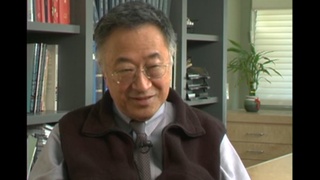Interviews
Interrogation by police (Japanese)
(Japanese) Before the war ended, I was called out to the police station, to the military, along with Mr. Takahashi. Mr. Miyakoshi was already in [the camps?], and Mr. Keizo Ishihara had gone home early. Those two were outside, so we were working. And they called us over, and my goodness, they asked us such appalling questions. They made us stand for five hours, and would ask about anything and everything. They asked about Mr. Simba, about this and that, everything—whatever they asked, we had to answer. So after asking several questions, they would question us where we were getting our funding from. Of course, we answered everything honestly. As for the money from the four business firms, I explained that we received it as a collective donation from all of their employees. It was good that I mentioned that, because otherwise, because liquidações (liquidation) was happening at each firm, they could have asked for the money back. But it helped that I thought about it and explained it that way. So after five hours, they would repeat everything that I said. But in these transcriptions, there would be several things that I never said! “I didn’t say that,” “Yes, you did,” “No, I didn’t”…the argument would go back and forth. In the end, they just got fed up and just erased it. At the end, they wrote some things about the família (family) that raised me, so I said “I never talked about any of that, so please erase it.” So I was able to get that erased, too. In the end, there were pages upon pages that they wrote, which I had to go through and sign. And when I was leaving, they told me that I couldn’t tell anyone about it—“Põe ziper na boca (keep your mouth shut),” they would say.
Date:
Location: Brazil
Contributed by: Caminho da memória - 遥かなるみちのり. São Paulo, Brazil: Comissão de Elaboração da História dos 80 Anos de Imigração Japonesa no Brasil, 1998. VHS.








